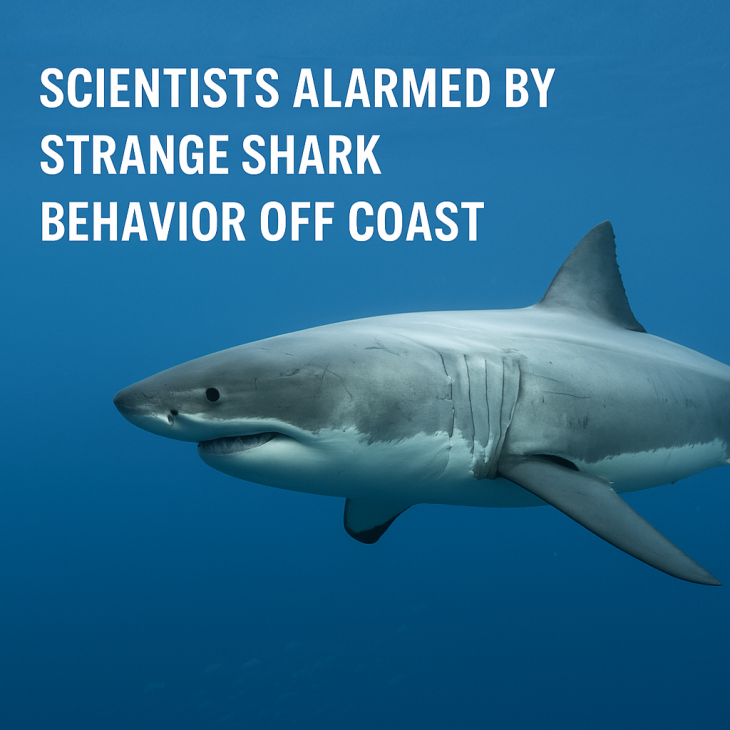
By Publisher Ray Carmen :
For over 450 million years, sharks have ruled the oceans—silent, graceful, and vital. As apex predators and ecological regulators, they have withstood mass extinctions, shifting continents, and global climate changes. But now, scientists are sounding the alarm: something strange is stirring in the deep.
Marine biologists monitoring coastal regions have reported unusual and erratic behaviors in several shark populations, ranging from disorientation and uncharacteristic aggression to changes in migratory patterns.
“These are not random movements,” said Dr. Lila Fernández, lead researcher at the Oceanic Behavior Institute. “This is a signal. And it’s hugely critical for understanding what’s happening beneath the surface.”
A Sentinel Species in Distress?
Sharks act as indicators of ocean health. When they behave abnormally, it often reflects a deeper imbalance—be it rising sea temperatures, underwater seismic activity, chemical pollution, or ecological collapse.
Some of the reported anomalies include:
-
Sharks venturing unusually close to shorelines
-
Increased pacing and circling behavior
-
Intraspecies aggression and confusion
-
Apparent neurological disorientation
Theories on the Table
While the exact cause is yet unknown, several theories are under close study:
-
Temperature Shifts: Rapid ocean warming may be affecting sharks’ internal navigation systems and hunting zones.
-
Toxins and Pollution: Microplastics, heavy metals, or chemical runoff could be compromising their neurological functions.
-
Magnetic Field Disturbances: Sharks use Earth’s magnetic fields for navigation. Interference—natural or man-made—may be leading to behavioral breakdowns.
“We’re witnessing an ancient intelligence being disrupted,” said Dr. Rajan Kaur, a shark neurologist. “It’s not just a scientific puzzle—it’s a wake-up call.”
Why It Matters for Us All
Sharks are vital to maintaining balance in marine ecosystems. If they falter, so too may the food chains that feed over 3 billion people worldwide. Their health reflects the state of our oceans—and by extension, our own future on this planet.
“This isn’t just about sharks. It’s about all of us. They’ve survived what dinosaurs couldn’t. If they’re struggling now, it means something in our world has fundamentally changed.”
A Call to Watch—and Act
Marine teams are intensifying efforts to gather data and conduct tagging missions. Public awareness campaigns are urging governments to invest in ocean health research and to curtail pollution before these behaviors become the new normal.
Final Thought
They’ve patrolled the depths longer than trees have grown on land. They are memory, motion, myth—and they are sending us a message.
The question is:
Will we listen in time?




